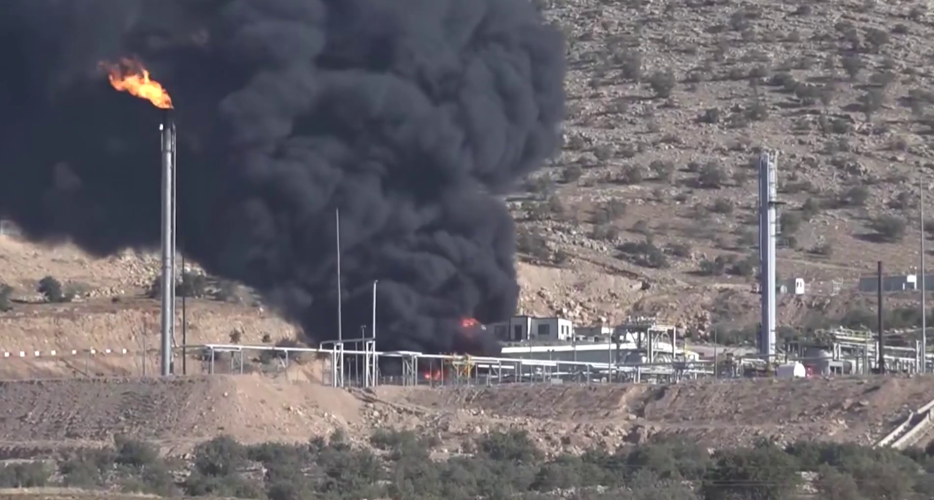
Peregraf
The United Kingdom has strongly condemned a wave of drone attacks across Iraq, including several that have targeted vital energy infrastructure in the Kurdistan Region.
In a statement issued Friday by the British Embassy in Baghdad, the UK said the strikes threaten civilian safety, destabilize the country, and inflict serious damage on Iraq’s economy.
“The UK condemns the recent drone attacks across Iraq, including those this week targeting energy infrastructure in the KRI,” the statement read. “These attacks threaten civilians’ safety, damage Iraq’s economy and undermine Iraq’s stability.”
The UK urged the Iraqi government to take immediate steps to prevent further attacks and hold those responsible accountable.
On Thursday, Kurdistan Regional Government (KRG) Interior Minister Rebar Ahmad dismissed the need for an investigation into the recent wave of drone strikes, saying their origin was “very clear,” though he did not name specific groups or locations.
“These are terrorist acts targeting the economic nerve of the Kurdistan Region,” Ahmad told reporters. “We are coordinating with the federal government to prevent these attacks and protect vital sites. We have also requested support from international coalition forces.”
Although Ahmad did not attribute blame directly, the KRG has previously accused elements within the Hashd al-Shaabi (Popular Mobilization Forces – PMF), a powerful state-backed militia network, of orchestrating the attacks.
The call for federal intervention comes amid a sharp rise in drone attacks across the Kurdistan Region. On Thursday morning, a drone struck the DNO-operated Tawke oil field in Zakho at 10:55 a.m., according to the Kurdistan Directorate General of Counter Terrorism (CTD). A day earlier, three drones targeted the Tawke, Peshkabur, and Ain Sifni oil fields in Duhok province, causing material damage but no reported casualties.
Since June 30, more than ten drone-related incidents have been reported across Erbil, Sulaymaniyah, Duhok, and Zakho. Besides energy facilities, other targets have included military sites, refugee camps, and civilian areas, raising fears about regional instability.
On Tuesday, the Ministry of Natural Resources described the escalation as “unprecedented,” confirming that at least five major oil fields had been attacked within a 35-hour span. These include Khurmala, Sarsang, Ain Sifni, Tawke, and Peshkabur—together producing around 247,000 barrels per day out of the Kurdistan Region’s total 300,000-barrel output.
“This is the first time drone strikes have caused such extensive damage to oil infrastructure in the Kurdistan Region,” the ministry stated. “The attacks aim to disrupt the region’s economic lifeline and threaten the lives of energy sector workers.”
The ministry called on the federal government and international partners to act swiftly, warning that “immediate intervention is needed to stop further strikes and protect the energy sector.”
In Baghdad, the Presidency of the Republic condemned the attacks as “terrorist acts” and called for the perpetrators to be brought to justice. Prime Minister Mohammed Shia’ al-Sudani has ordered an investigation and emphasized the importance of safeguarding Iraq’s strategic infrastructure.